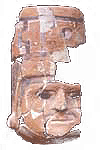 |
|
|
|
The UCSD Rio Muerto Archaeological Field School
July 5 to August 2, 2008 |
Join us for the UCSD Rio Muerto archaeological field school in Moquegua, Peru this summer! Students will participate in the excavation and laboratory analysis of a Tiwanaku culture town and cemetery dating to the 8th century AD. Through hands-on experience, we will learn archaeological research design, and methods of survey, field data collection, laboratory curation and analysis of ceramics, human skeletal collections, textiles and wooden and metal artifacts.

The Moquegua Valley
The Setting
The Rio Muerto site is located in the Moquegua Valley, a green oasis in Peru's coastal desert. Our field camp is near the picturesque old colonial town of Moquegua, famed for its quiet charm, colonial wineries, and rich archaeological heritage.
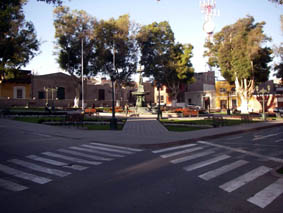
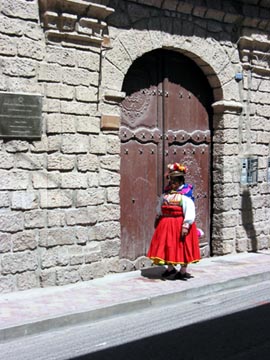 Moquegua
City
Moquegua
City
The Site
The Rio Muerto site was one of Peru's largest known settlements of the Tiwanaku culture. This year, we will be excavating in domestic and cemetery areas of the site. Preservation is excellent and we expect both mummified and skeletal remains, textiles and a range of artifacts and offerings.
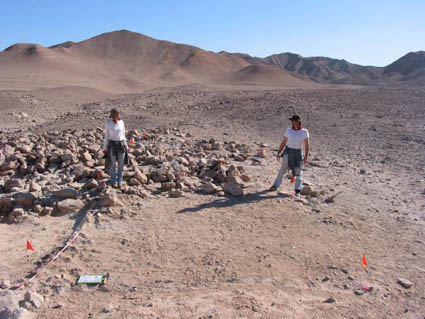
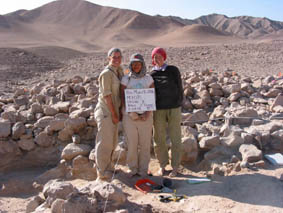
Excavationof a Tiwanaku cemetery at Rio Muerto, M70
The Work Week
Mondays through fridays we will be excavating or working in the lab. It is hot and the desert sun is fierce, so our work day begins and ends early! Our bases for lab work are the Museo Contisuyo, in the city of Moquegua, one of South America's premier regional museums, and at our project field camp at Estacion Conde, in the Moquegua valley. Weekends are reserved for group excursions visiting local sites of interest and free time. We will also be celebrating the "Veintiocho" (July 28) weekend, Peruvian Independence Day.
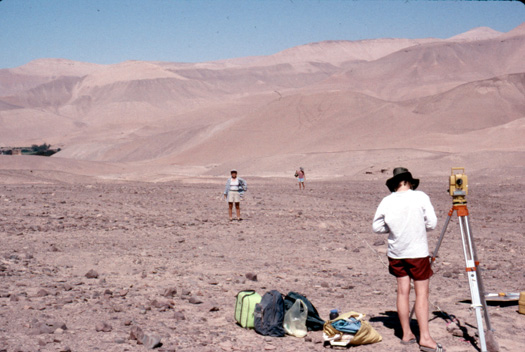
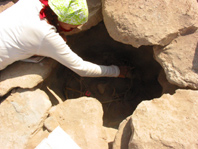
Survey and exavation at Rio Muerto


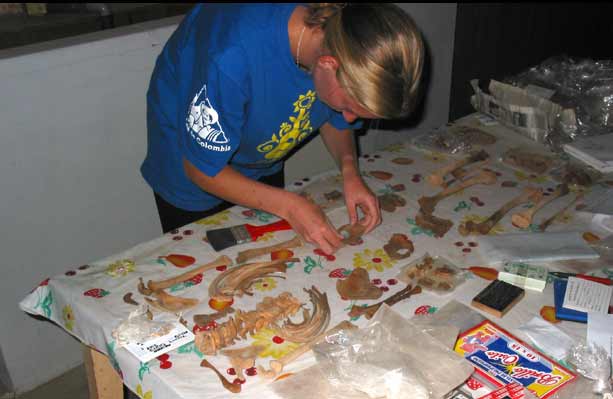
Lab analysis - skeletal inventory
Academics
All students register for ANAR 119S, Archaeological Field and Lab Class (8 credits). Students may also optionally register for ANAR 157 Early Empires of the Andes (4 credits) which will require additional readings and meeting time. Prerequisites are Sophomore standing and permission of the instructor.
Arequipa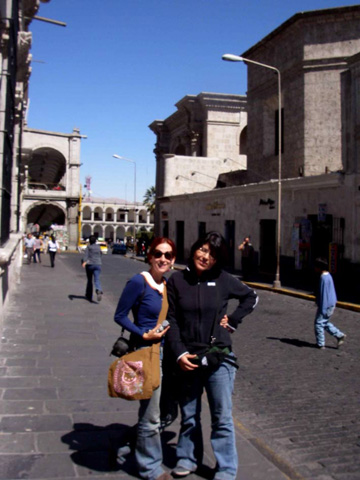
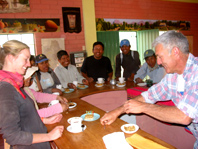
A Birthday at EstacionConde

Health Requirements
Field archaeology in the desert can be strenuous. Students must submit a physician's certificate, proof of vaccinations and insurance, and waivers upon acceptance to the program.

The Rio Muerto Crew, 2006
Costs
Students pay regular UCSD tuition and fees and a project program fee that covers room and board, local transportation and all instructional costs in Peru. UCSD students are eligible for financial aid. Fees do not include international airfares to Arequipa, Peru, where the program begins and ends.
Tuition and fees, 8 credits (UC students = $1162. Non-UC = $1610, fees subject to change) |
1,162.00 |
|
Program Fee |
2,400.00 |
Total, excluding airfare |
3,562.00 |
Please contact Professor Paul Goldstein at psgoldstein@ucsd.edu or telephone (858) 822 5747. Enrollment is limited, and preference may go to applicants with field and coursework in archaeology and a knowledge of Spanish.
![]()
Copyright ©2007 Paul S. Goldstein. All rights reserved.
